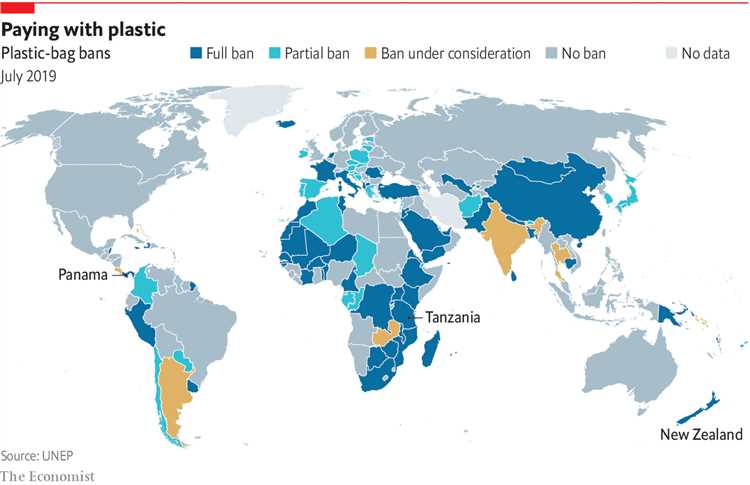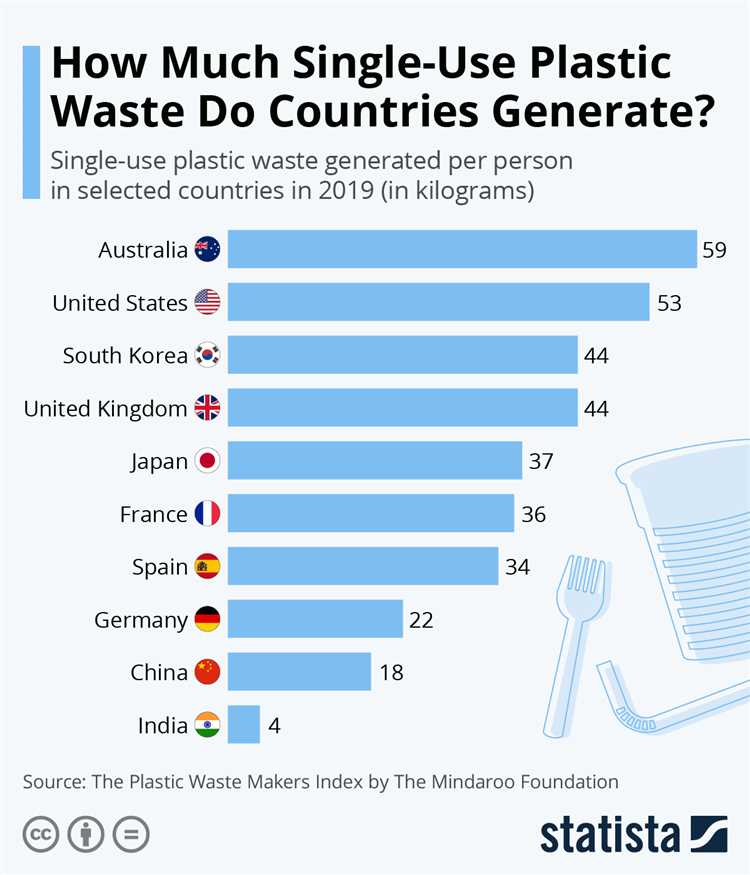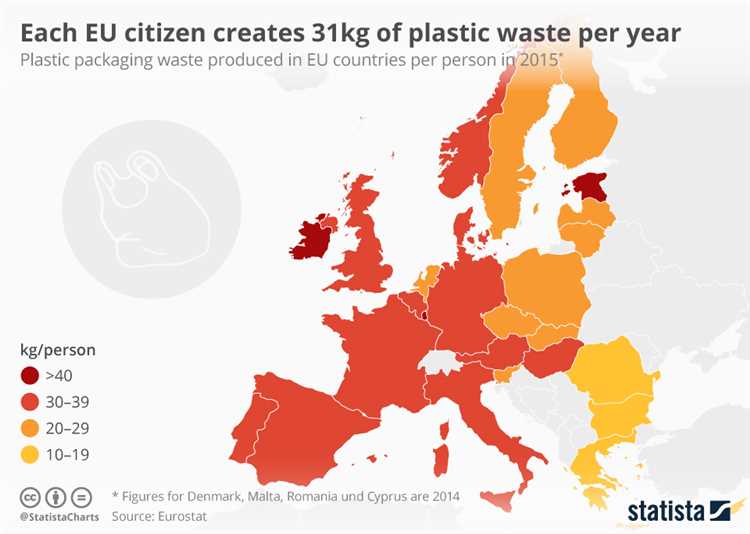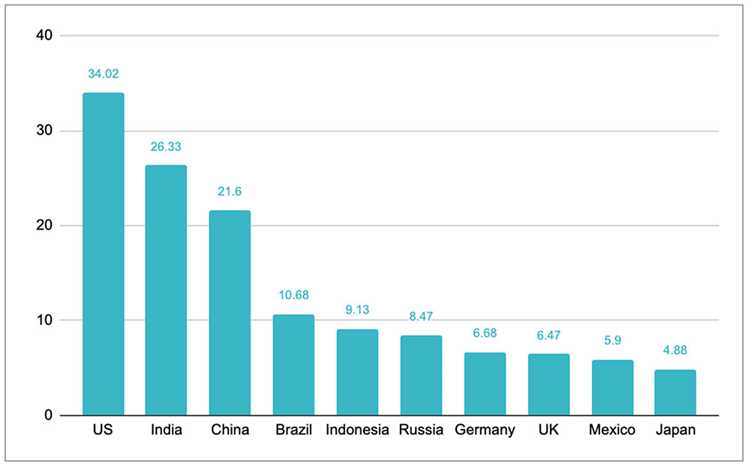
In today’s world, plastic bags have become an integral part of our daily lives. Whether it is grocery shopping, packing lunch, or carrying goods, we rely heavily on these convenient and lightweight bags. However, this convenience comes at a cost. Plastic bags are one of the leading causes of environmental pollution, and their excessive consumption has led to a global crisis.
Among all the countries in the world, one stands out for its staggering consumption of plastic bags – Jamaica. Situated in the Caribbean, this tropical paradise may be known for its beautiful beaches and vibrant culture, but it also struggles with a major environmental challenge. The consumption of plastic bags in Jamaica has reached alarming levels, surpassing that of any other nation.
The reasons behind Jamaica’s high plastic bag consumption are multifaceted. Firstly, the tourism industry plays a significant role. With millions of tourists visiting the country each year, the demand for plastic bags soars to cater to their needs. Additionally, the lack of awareness about the harmful effects of plastic bags and the absence of strict regulations contribute to the rampant usage.
The consequences of this plastic bag epidemic in Jamaica are grave. The beautiful coastlines and marine life are under constant threat from plastic pollution. The once-pristine beaches are now marred by plastic debris, endangering turtles, dolphins, and other marine creatures. Moreover, the long-term effects on public health and the economy cannot be ignored.
Addressing this issue is crucial, not only for the well-being of Jamaica but also as a global effort to combat plastic pollution. The government and local authorities must take immediate action by implementing stricter regulations, promoting alternatives to plastic bags, and raising awareness among the population. It is only through collective efforts that we can hope to reverse the devastating impact of plastic bags and safeguard our planet for future generations.
- Environmental Impact of Plastic Bags
- Land Impact
- Marine Impact
- Plastic Bag Consumption Trends Worldwide
- Factors Contributing to High Plastic Bag Consumption
- The Country with the Highest Plastic Bag Consumption
- Impact of High Plastic Bag Consumption on the Environment
- Pollution
- Habitat Destruction and Wildlife Threat
- Initiatives and Alternatives to Reduce Plastic Bag Consumption
- 1. Plastic Bag Bans
- 2. Usage Fees and Taxes
- Question-answer:
- Which country has the highest consumption of plastic bags?
- How much plastic bags does China consume?
- Why does China have such a high consumption of plastic bags?
- What are the environmental impacts of China’s high consumption of plastic bags?
Environmental Impact of Plastic Bags
Plastic bags are a major contributor to environmental pollution and have a significant impact on our ecosystems. The production, use, and disposal of plastic bags have detrimental effects on both land and marine environments.
One of the main concerns with plastic bags is their long lifespan. Unlike other materials, plastic bags can take hundreds of years to decompose, leading to a buildup of waste in landfills. This waste not only takes up valuable space but also releases harmful chemicals into the soil and groundwater.
Land Impact
The production of plastic bags requires the extraction of fossil fuels, primarily oil and natural gas. This extraction process contributes to air and water pollution, as well as the destruction of natural habitats. Additionally, the manufacturing of plastic bags produces greenhouse gas emissions that contribute to climate change.
Once plastic bags are disposed of in landfills, they create a barrier that prevents the decomposition of other organic waste. This slows down the natural recycling process and leads to the accumulation of waste over time.
Marine Impact
Plastic bags pose a significant threat to marine life. When these bags are improperly disposed of, they can end up in rivers, lakes, and oceans, where they can be mistaken for food by marine animals. Eating plastic bags can cause digestive blockages, leading to injury or death.
In addition to the harm caused by ingestion, plastic bags can also entangle marine animals such as sea turtles, seals, and birds. This leads to suffocation, drowning, and the disruption of natural behaviors and migration patterns.
The floating nature of plastic bags also contributes to the formation of marine debris. These bags can travel long distances and eventually accumulate in remote areas, causing damage to fragile ecosystems such as coral reefs.
Overall, the environmental impact of plastic bags is significant and far-reaching. It is crucial for individuals, businesses, and governments to take action to reduce plastic bag consumption, promote recycling, and find sustainable alternatives. By doing so, we can help mitigate the damage caused by plastic bags and protect our environment for future generations.
Plastic Bag Consumption Trends Worldwide
Plastic bag consumption is a global issue that has gained significant attention in recent years. The use of plastic bags has become widespread across the globe, leading to serious environmental consequences. Various countries have implemented measures to tackle this problem by regulating or banning plastic bags.
In many developing countries, the consumption of plastic bags is growing rapidly. This can be attributed to factors such as population growth, urbanization, and a rise in disposable incomes. The convenience and affordability of plastic bags make them a popular choice among consumers in these regions.
However, the negative impacts of plastic bag consumption are becoming increasingly apparent. Plastic bags are a major source of pollution, often ending up in landfills or polluting water bodies. They take hundreds of years to decompose and can harm wildlife through ingestion or entanglement.
In contrast, some developed countries have made significant progress in reducing plastic bag consumption. These countries have implemented policies such as charging for plastic bags, promoting reusable alternatives, and encouraging consumers to adopt greener practices. This has led to a decrease in plastic bag usage and a shift towards more sustainable options.
Plastic bag consumption trends vary greatly from one country to another. While some nations have successfully reduced their reliance on plastic bags, others continue to face challenges in curbing consumption. Addressing this issue requires a comprehensive approach, including public awareness campaigns, policy interventions, and the promotion of sustainable alternatives.
As the global community continues to recognize the detrimental effects of plastic bag consumption, efforts to reduce usage and promote sustainable alternatives will likely intensify. By understanding and learning from the consumption trends worldwide, countries can work towards creating a greener and more sustainable future.
Factors Contributing to High Plastic Bag Consumption

There are several factors that contribute to the high consumption of plastic bags in a country. These factors can vary depending on the economic, cultural, and environmental context of the country.
One of the main factors is the lack of awareness about the negative environmental impacts of plastic bags. Many people are unaware of the long-term consequences of using and disposing of plastic bags, which leads to their widespread use.
Another factor is the convenience and affordability of plastic bags. Plastic bags are lightweight, easy to carry, and cheap to produce, making them a popular choice for both retailers and consumers. The convenience factor often outweighs the environmental concerns for many individuals.
In some countries, there may be a lack of alternative options to plastic bags. This can be due to limited availability of reusable bags or a lack of government regulations promoting alternatives. Without viable alternatives, people are more likely to continue using plastic bags.
The cultural norms and habits surrounding shopping also play a role. In some countries, it may be common to use a large number of plastic bags per shopping trip. This behavior is often influenced by cultural practices and traditions, and it can be challenging to shift these habits.
Additionally, the lack of proper waste management systems can contribute to high plastic bag consumption. If there are no efficient systems in place to collect, recycle, or properly dispose of plastic bags, they may end up littering the environment, leading to a cycle of continued consumption.
| One of the table cells | Another table cell |
| Another row, first cell | Another row, second cell |
The Country with the Highest Plastic Bag Consumption

Plastic bags have become a staple in our everyday lives, but some countries are consuming them at alarmingly high rates. One country that stands out for its excessive plastic bag consumption is [Country Name].
With a population of over [Population Number], it is estimated that the country uses an average of [Number of Plastic Bags Used per Year] plastic bags per year. This means that each person in the country uses an average of [Number of Plastic Bags Used per Person per Year] plastic bags annually.
There are several factors that contribute to the high plastic bag consumption in [Country Name]. Firstly, the lack of awareness and education about the environmental impact of plastic bags plays a significant role. Many people are unaware of the harm that plastic bags cause to our ecosystems, and therefore continue to use them without thinking twice.
Additionally, there are limited regulations and restrictions on the use of plastic bags in [Country Name]. This lack of enforcement allows for the widespread use of plastic bags, as there are no penalties or incentives to discourage their usage.
Another factor contributing to the high consumption is the convenience and affordability of plastic bags. They are readily available in stores and supermarkets, and are often given away for free. This makes it easy for people to rely on plastic bags for their everyday needs, without considering the long-term consequences.
The excessive plastic bag consumption in [Country Name] has severe environmental implications. Plastic bags contribute to pollution and are a major source of marine debris, posing a significant threat to marine life. They take hundreds of years to break down, and during this process, release harmful toxins into the environment.
Efforts to reduce plastic bag consumption in [Country Name] have been made, but more needs to be done. Implementing strict regulations and incentives, as well as raising awareness and promoting sustainable alternatives, are crucial steps towards reducing plastic bag consumption and protecting the environment.
In conclusion, [Country Name] has the highest consumption of plastic bags. This is primarily due to the lack of awareness, limited regulations, and the convenience of plastic bags. It is imperative that actions are taken to curb this excessive usage and protect the environment for future generations.
Impact of High Plastic Bag Consumption on the Environment
The high consumption of plastic bags in a country has severe implications for the environment. The irresponsible use and disposal of these bags contribute to a range of environmental issues, including pollution, habitat destruction, and threat to wildlife.
Pollution
Plastic bags are non-biodegradable, meaning they do not break down naturally in the environment. When improperly disposed of, these bags can end up in landfills or find their way into water bodies, such as rivers and oceans. This leads to pollution of both terrestrial and aquatic ecosystems. Plastics take hundreds of years to decompose, releasing harmful chemicals into the environment during their gradual breakdown. These chemicals can contaminate soil and water, posing a threat to plant and animal life.
Habitat Destruction and Wildlife Threat
The production and consumption of plastic bags contribute to deforestation and destruction of natural habitats. The extraction of raw materials for plastic bag production often involves clearing large tracts of land, leading to the loss of valuable ecosystems. This destruction disrupts the balance of ecosystems, endangering plant and animal species.
Furthermore, plastic bags pose a direct threat to wildlife. Marine animals, such as turtles, whales, and seabirds, mistake plastic bags for food and ingest them. This can lead to internal injuries, blockages in the digestive system, and starvation. Additionally, animals can become entangled in plastic bags, resulting in injuries or even death.
| Environmental Impact | Solutions |
|---|---|
| Pollution of land and water | Promoting the use of reusable bags |
| Habitat destruction | Supporting sustainable practices |
| Threat to wildlife | Implementing stricter regulations on bag usage and disposal |
To address these environmental issues, it is crucial for governments and individuals to take action. Promoting the use of reusable bags and reducing plastic bag consumption can significantly decrease the environmental impact. Supporting sustainable practices, such as recycling and responsible waste management, is also essential. Additionally, implementing stricter regulations on bag usage and disposal can help mitigate the threat to wildlife and preserve ecosystems.
Initiatives and Alternatives to Reduce Plastic Bag Consumption

Recognizing the environmental impact of plastic bags, countries around the world have taken various initiatives to reduce their consumption. These initiatives aim to encourage individuals to switch to more sustainable alternatives and promote the use of reusable bags.
1. Plastic Bag Bans
Several countries have implemented nationwide bans on plastic bags, prohibiting their use in retail and grocery stores. This forces consumers to bring their own bags or purchase reusable ones at the store. These bans have proven to be effective in reducing plastic bag usage and promoting eco-friendly habits among consumers.
2. Usage Fees and Taxes
Another approach is imposing usage fees or taxes on plastic bags. By making plastic bags more expensive, consumers are incentivized to bring their own bags or opt for alternatives such as paper bags. The revenue generated from these fees or taxes can be used for environmental projects or to fund education and awareness campaigns about the negative impacts of plastic bags.
In addition to these initiatives, there are various alternatives to plastic bags that individuals can adopt:
1. Reusable Bags: Switching to reusable bags made of fabric, jute, or other sustainable materials is a simple yet effective way to reduce plastic bag consumption. These bags can be used repeatedly and are more durable than plastic bags.
2. Paper Bags: While not as eco-friendly as reusable bags, paper bags are biodegradable and can be recycled. Many stores now offer paper bags as an alternative to plastic ones.
3. Biodegradable Bags: Biodegradable bags are made from materials that break down more easily in the environment, reducing their long-lasting impact. Some biodegradable bags are also compostable.
4. Encouraging Behavior Change: Education and awareness campaigns are crucial in promoting behavior change. By informing individuals about the harmful effects of plastic bags on the environment, they can be encouraged to adopt alternative options and reduce their reliance on plastic bags.
These initiatives and alternatives play a significant role in reducing the consumption of plastic bags and mitigating their environmental impact. By embracing sustainable practices, individuals and societies can work towards a cleaner and greener future.
Question-answer:
Which country has the highest consumption of plastic bags?
The country with the highest consumption of plastic bags is China.
How much plastic bags does China consume?
China consumes approximately 80 billion plastic bags annually.
Why does China have such a high consumption of plastic bags?
There are several reasons for China’s high consumption of plastic bags. First, the rapid urbanization and economic growth in the country have led to increased consumerism and a higher demand for goods, resulting in more plastic bags being used. Additionally, plastic bags are often provided free of charge in many stores and are used for various purposes, including carrying groceries and other goods. This convenience has contributed to the high consumption.
What are the environmental impacts of China’s high consumption of plastic bags?
China’s high consumption of plastic bags has significant environmental impacts. Plastic bags are non-biodegradable and can take hundreds of years to decompose. When not properly disposed of, they can end up in rivers, oceans, and other habitats, causing harm to wildlife and marine ecosystems. Additionally, the production of plastic bags requires the extraction of fossil fuels and the emission of greenhouse gases, contributing to climate change.
